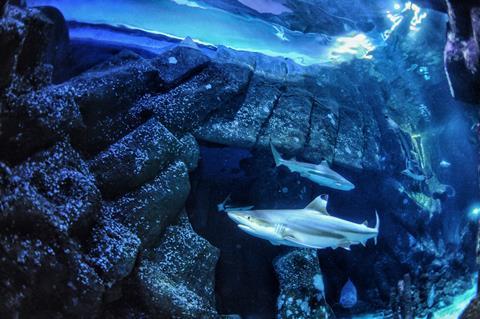
Shark teeth are at risk of becoming more fragile as the world’s oceans acidify as a result of rising carbon dioxide levels.
That was the discovery made by researchers at Heinrich Heine University Düsseldorf who collected naturally discarded, intact teeth from the aquarium floor of a blacktip reef shark enclosure. They then incubated these teeth for eight weeks in two separate tanks, one with a pH of 8.1 representing current oceanic conditions and one with a pH of 7.3, corresponding to the predicted level for 2300.
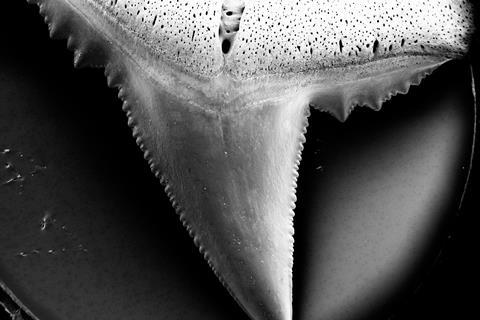
Using scanning electron microscopy, the researchers found that the teeth exposed to more acidic conditions experienced corrosion on the root, crown and the serrations of the teeth. The loss of serrations could have implications for the species’ hunting efficiency. Structural degradation also compromises the overall strength of the tooth, increasing fragility. Compounding this, blacktip sharks swim with mouths agape to maintain flow across their gills for proper oxygenation, fully exposing their teeth to acidifying oceans.
However, the authors note that results may differ in living organisms. Previous studies have shown that some shark species increase fluoride content in teeth in response to ocean acidification, which can help to protect teeth. As such, they recommend future studies should look behind the chemical effects on non-living tissue to include actual chemical structure and mechanical resilience in live sharks.
References
M Baum et al, Front. Mar. Sci., 2025, DOI: 10.3389/fmars.2025.1597592



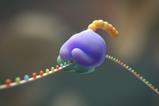


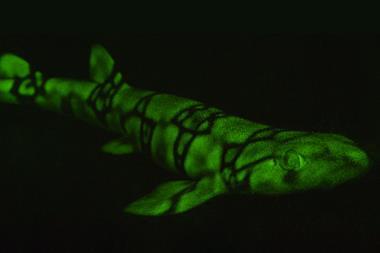
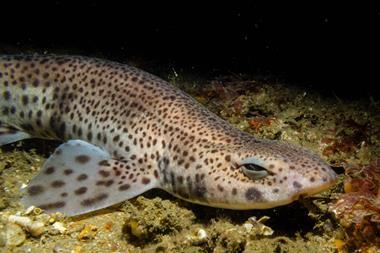
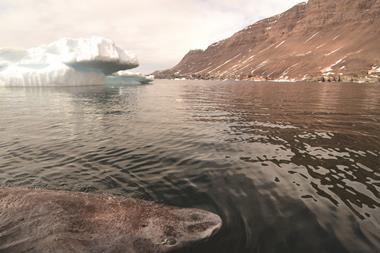

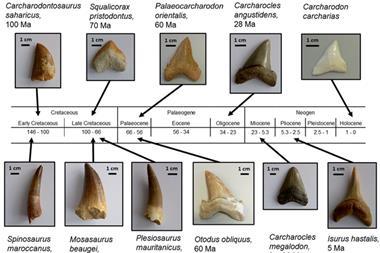






No comments yet